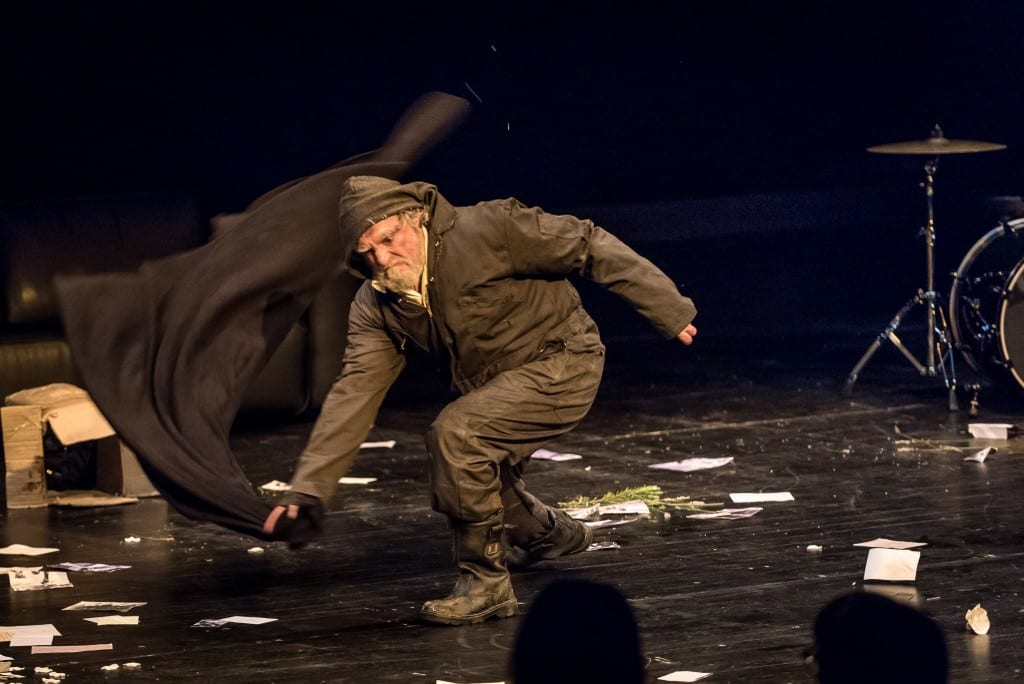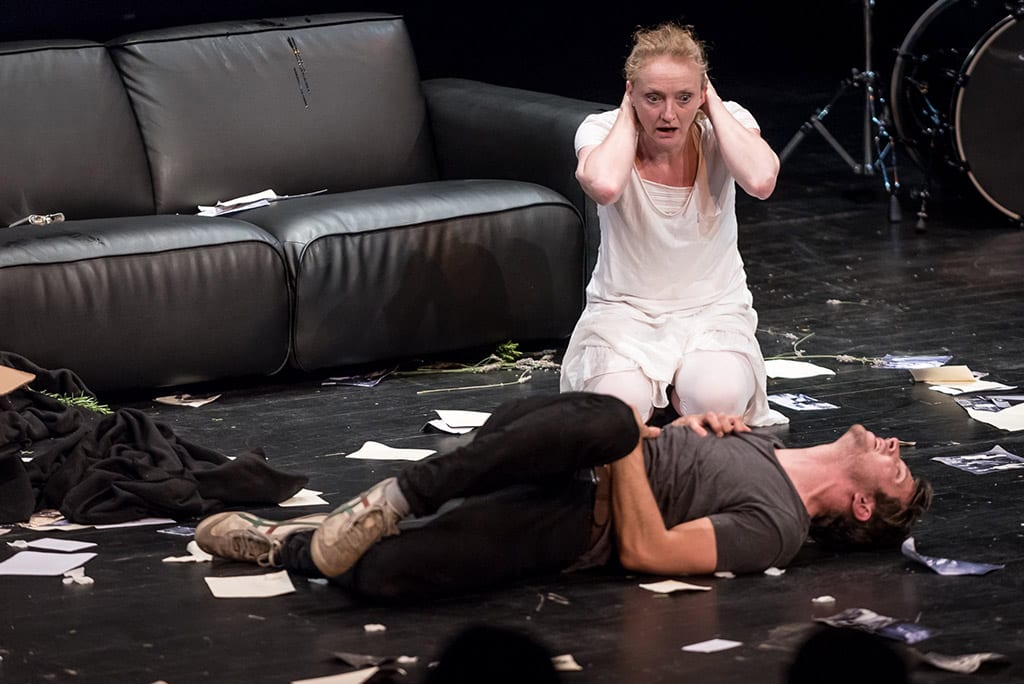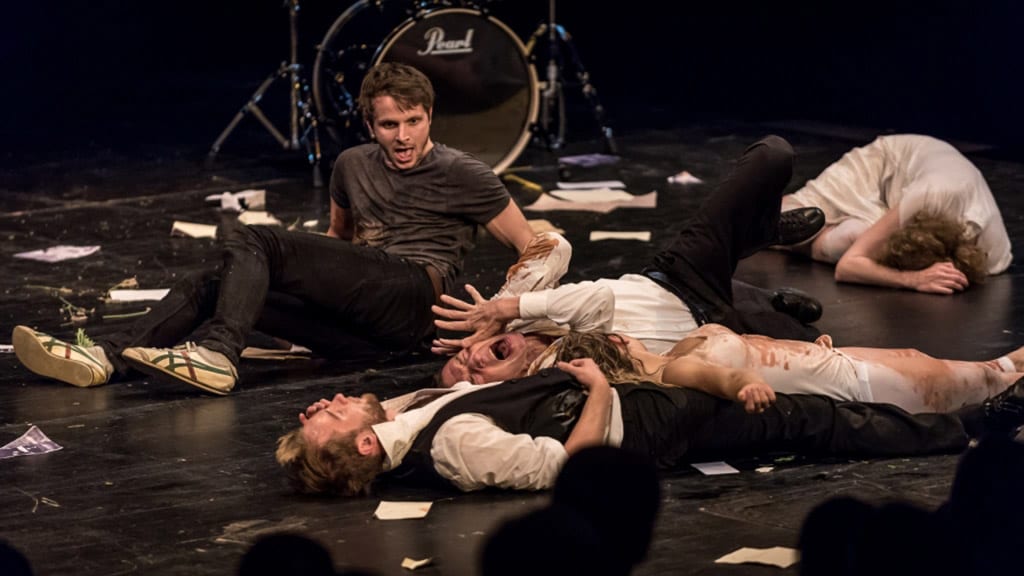Hamlet performed in just ninety minutes by a cast of six looks, on paper, to be an act of utter madness. But though this be madness, yet there is method in it. Flute Theatre’s Hamlet keeps the big soliloquies and plot arches but cuts cannily, if mercilessly. The result is a radical retelling that manages to find intriguing insights into Shakespeare’s most ubiquitous tragedy.
The rotten state of Denmark becomes the King and Queen’s front room, the set dominated by a black sofa that makes Hamlet a thoroughly domestic tragedy rather than a state of the nation play. Deeply claustrophobic, and perfectly suited to the Park Theatre’s more intimate second space, this Hamlet takes place over the course of one night – Claudius and Gertrude’s wedding night – and merges characters to condense the dramatis personae into a troubled extended family. The play within the play designed to catch the conscience of Claudius, the new king who murdered his brother, Hamlet’s father, is replaced with a parlour game that cleverly reinforces the sense that this is an after-party gone terribly wrong.
Claudius and Gertrude (Tom Mannion and Kelly Hunter) stagger onto the scene presumably straight from their wedding reception to find Hamlet (Mark Quartley) sulking over old family photos, disgusted by his mother’s flaunting of her rekindled sexuality to an extent that would make Freud proud. Eerily possessed by the ghost of his father, Hamlet embarks upon a tormented though reluctant quest for revenge that climaxes in the bloody deaths of his incestuous family, his lover Ophelia (Francesca Zoutewelle), her brother Laertes (Finlay Cormack) and their father Polonius (Steven Beard). By the time the sun rises on the tragedy, only the gravedigger (also Beard) lives to tell the tale.
Flute Theatre’s cuts and inventions make Laertes Hamlet’s best friend, an amalgam of Laertes, Horatio, Rosencrantz and Guildenstern, rendering their mortal combat at the end of the play particularly heart-breaking. The production also reinvigorates the role of Ophelia, giving her agency, heightening her tragedy, and lending her some of Gertrude’s lines with staggering effect, beautifully acted by Zoutewelle. Quartley’s Hamlet is charged with an impressive physicality but numbed by a deep psychological brooding, an exciting exploration of the character that really steals the show. Kelly Hunter must also be praised both for her taught direction and her Gertrude, a middle-aged mother schoolgirl giddy on second love.
Flute Theatre’s Hamlet is Shakespeare’s great tragedy stripped to its bones but the cast pick at the carcass, savouring the juiciest morsels. It’s remarkable that Hamlet in an hour and a half can still feel like Hamlet with all its depths and shadows. The problem with such a sparse version of the play, however, is that every single non-essential moment feels like it, too, could have been cut, and so drags. For the most part, though, this is an impressive, witty and genuinely thrilling Hamlet that shows great knowledge of Shakespeare’s play even as it decimates it. With a clear vision and a brilliant cast, Flute Theatre’s Hamlet shows what Shakespeare can be – if only more companies had the guts to take such risks.





